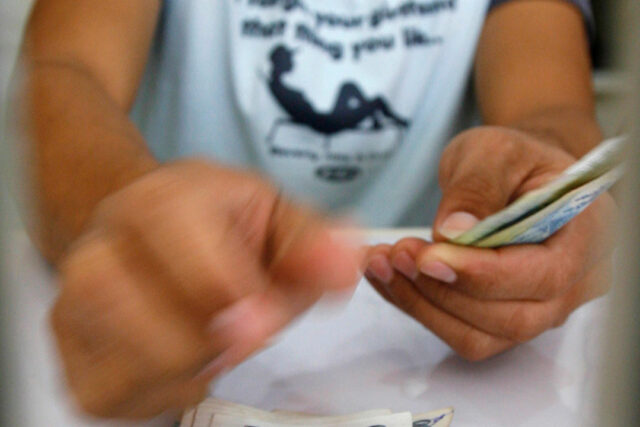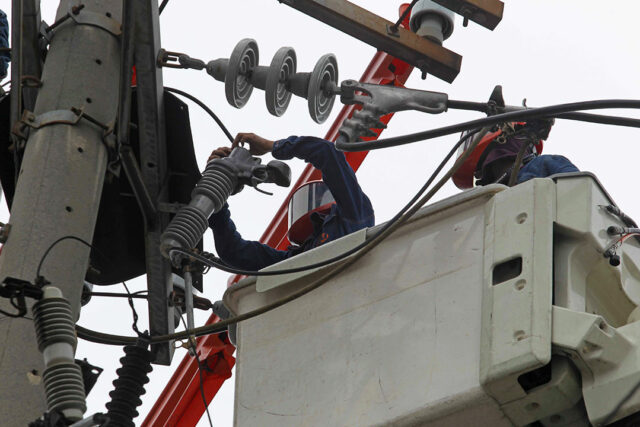Peso weakness ‘temporary’ — BSP

By Luisa Maria Jacinta C. Jocson, Reporter
THE BANGKO SENTRAL ng Pilipinas (BSP) sees the recent peso weakness as temporary amid the expected delay in the US Federal Reserve’s policy easing.
“We also have to consider that this depreciation of the peso, we view it as temporary given the monetary policy stance of the US, particularly of delaying the reduction in the policy rate of the US. And we believe this is only temporary,” BSP Senior Assistant Governor Iluminada T. Sicat told a press briefing on Friday.
The peso closed at P58.65 per dollar on Friday, weakening by seven centavos from its P58.58 finish on Thursday.
Week on week, the local unit declined by six centavos from its P58.52 finish on June 7.
The Fed on Wednesday left its policy rate unchanged in the 5.25%-5.5% range. Fed Chair Jerome H. Powell said any rate cuts would wait until the central bank is more confident that inflation is headed toward the Fed’s 2% goal, or sees unexpected deterioration in the labor market, Reuters reported.
Fed officials are now projecting only one rate cut this year compared with previous expectations of three.
Ms. Sicat said that the peso will be impacted by foreign exchange (FX) supply and demand.
“We are anticipating our balance of payments (BoP) for 2024 to be at a surplus of $1.6 billion. Meaning to say there will be more supply of FX. We are anticipating more supply of FX in 2024 than what is being demanded.”
The BSP last week revised its BoP surplus forecast to $1.6 billion or 0.3% of gross domestic product (GDP) for this year, higher than its previous estimate of $700 million.
“Any depreciation of the peso would require more dollars for imports, for instance. In terms of BoP, that would require more dollar outflow,” Ms. Sicat said.
“We believe the current depreciation of the peso is merely sentiment-driven but mainly the direction or path of the FX rate will be determined largely by what (are) the fundamental developments,” she added.
BSP Governor Eli M. Remolona, Jr. earlier said that the peso’s recent performance is a case of a “strong dollar” amid tensions in the Middle East.
In mid-May, the peso sank to the P58-per-dollar level for the first time in 18 months or since November 2022.
The BSP said it has intervened in “modest” amounts to keep markets orderly and control FX speculation.
The Development Budget Coordination Committee expects the peso to range from P55-P57 a dollar this year.
IMPACT ON LOCAL FIRMS
Meanwhile, Leonardo A. Lanzona, an economics professor at the Ateneo de Manila University noted the impact of the peso weakness on local firms.
“The problem is not the depreciation, but how resilient are the firms in the face of a lower peso value. Indeed, the other currencies are also falling as a result of a stronger dollar. But the larger conglomerates in the Philippines are more exposed to this shock,” he said in an e-mail.
“This group has been among the most active spender and borrower of dollar-linked instruments over the past decade, either by choice (lower cost) or necessity (size of domestic funding sources).”
Mr. Lanzona said that firms in other Southeast Asian countries would be able to “stand up” to the dollar, but Philippine firms may face difficulties and could be “unable to take advantage of the opportunities created by the depreciation.”
“Because of this, as well as the consequent inflation, the demand for the Philippine peso would continue to decline. In effect, greater depreciation would be expected,” he added.
Mr. Lanzona said that the central bank would need to defend the peso through direct monetary intervention or keep interest rates high. “In both cases, growth will be compromised.”
John Paolo R. Rivera, president and chief economist at Oikonomia Advisory & Research, Inc., said that the BSP has the power to manage any excessive depreciation.
“The BSP has maintained sufficient dollar reserves to do this. It needs to maintain a healthy balance between the export growth and import decline due to currency depreciation,” he said in a Viber message.
Gross international reserves rose by 1.8% to $104.48 billion as of end-May from a quarter ago. This was the highest level of reserves in over two years.























